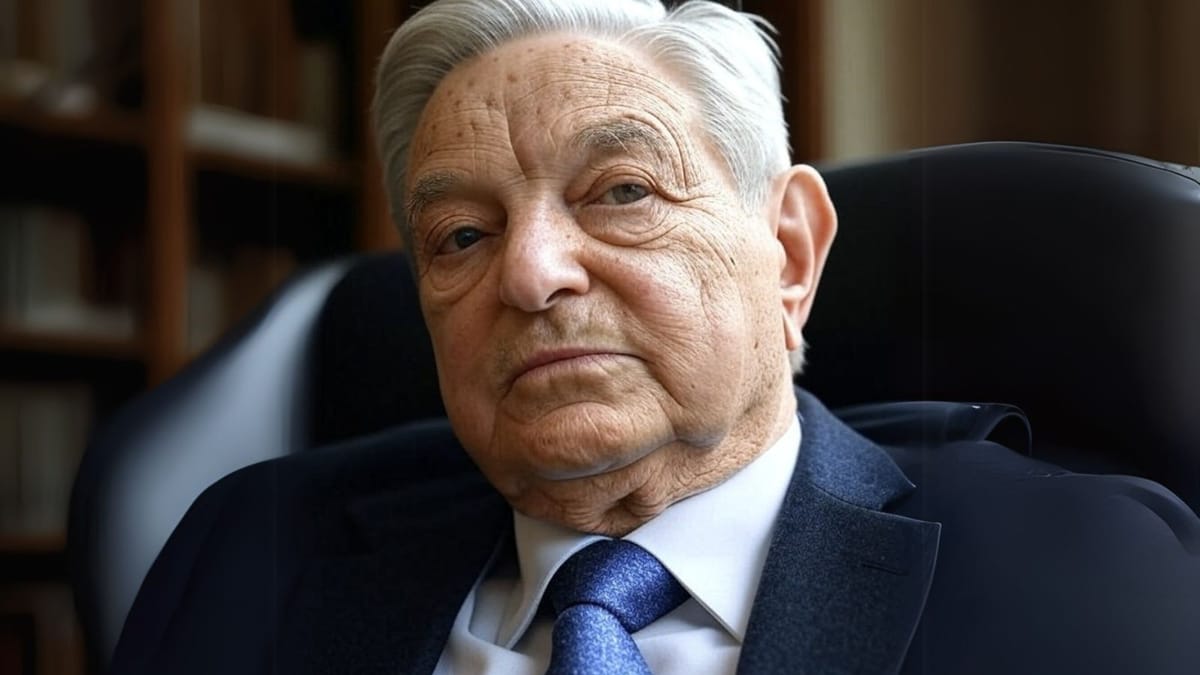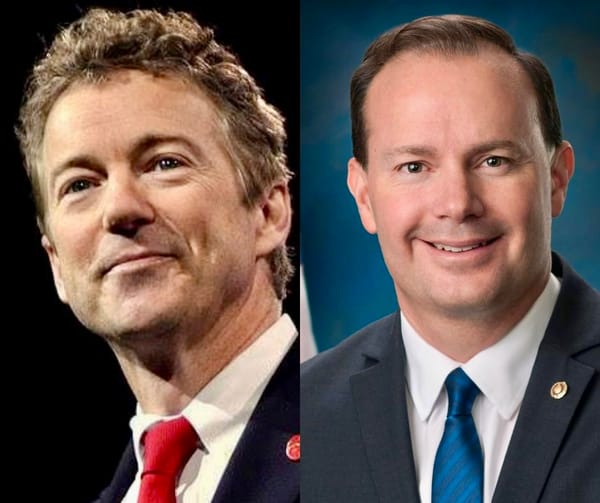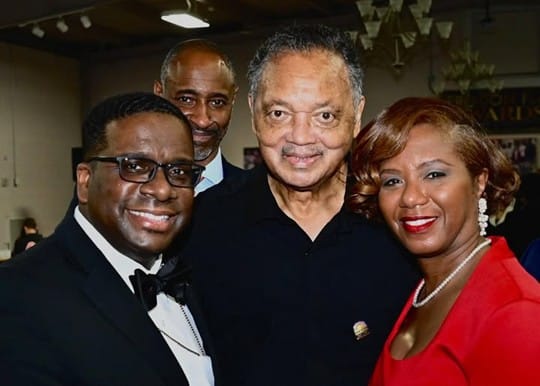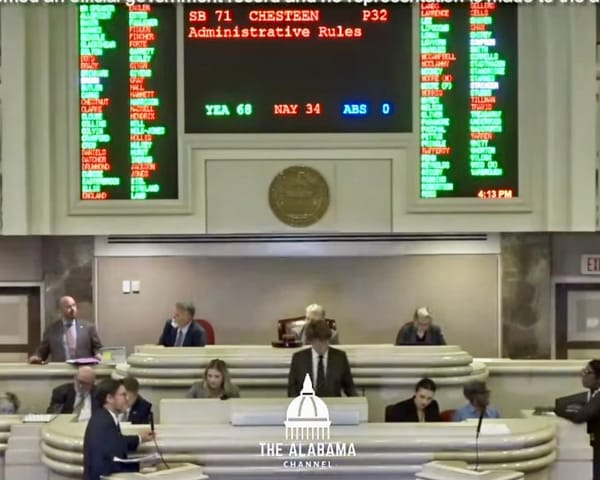A George Soros—Southern Baptist Connection?
ERLC's alleged involvement with Soros-linked immigration initiatives raises concerns among some Southern Baptists—ALPolitics.com investigates

The Ethics & Religious Liberty Commission (ERLC), the public policy arm of the Southern Baptist Convention (SBC), has been the source of controversy within the SBC for some time. Accusations have been swirling around ERLC related to its connections, through other organizations, to billionaire George Soros and his progressive agenda.
A May 22 article by David Mitzenmacher from the Center for Baptist Leadership, “How George Soros Uses the Evangelical Immigration Table & the ERLC to Influence the SBC” made some astonishing claims about ERLC and its alleged ties to Soros and organizations he funds. ALPolitics.com has begun investing these claims, and what follows is an initial report of our findings.
As previously reported, critics have charged that ERLC may no longer serve the denomination’s mission. Recently, Albert Mohler, President of Southern Baptist Theological Seminary, publicly questioned the ERLC’s “utility,” and a motion to abolish the Commission is expected to be made at the SBC’s upcoming Annual Meeting in Dallas, June 8-11.
A significant point of contention is ERLC’s participation in the Evangelical Immigration Table (EIT), a coalition advocating for progressive immigration reform, and its ties to George Soros through Soros’ Open Society Foundation (OSF) via the National Immigration Forum (NIF). The EIT, established to “promote a biblical perspective on immigration”, includes the ERLC among its leadership. As of June 6, 2025, ERLC (and its current President, Brent Leatherwood) is listed on EIT’s web page as a “Leadership Organization” operating under the EIT’s umbrella.
Some have pointed to the EIT's direct connections with the National Immigration Forum (NIF), an organization that has received significant funding from George Soros's Open Society Foundations (OSF). In fact, Breitbart reported that there is no significant difference between EIT and NIF, because the EIT does not seem to exist as a discrete legal entity—it only exists as a group of 501(c)3’s and (c)4’s using the NIT to “facilitate” its work.
Documents also indicate that the NIF played a central role in organizing and staffing the EIT. A 2017 memo from the NIF stated that “In 2013, the (NIT’s) Action Fund partnered with the Evangelical Immigration Table (EIT) to execute a groundbreaking Christian radio ad campaign in 65 target districts across 20 states.” This ad campaign targeted White Evangelicals using “trusted messengers”—pastors who led churches in the target region—to ”have a dramatic effect on the debate around immigration reform for white evangelicals.” A former NIF employee, Guthrie Graves-Fitzsimmons, describes himself as having “helped launch the Evangelical Immigration Table as the National Immigration Forum’s Faith Coordinator.“ Finally, a NIF job description specifies some of the duties of the position as being responsible for carrying out the strategic plans for both the NIF and the EIT: “Carry out the strategic plans of the Forum, BBB and the Evangelical Immigration Table…” and “Provide support and mobilization for the Evangelical Immigration Table….”
Further complicating matters, Soro’s OSF has been a major donor to the NIF. A 2013 OSF board book noted that funding was provided to the NIF Action Fund to "muster evangelical support" for immigration reform initiatives . This financial backing has fueled concerns about the influence of progressive agendas within evangelical circles.
Research commissioned by the NIF has investigated strategies to engage evangelical audiences effectively, to shift their perspectives towards a more pro-immigration stance. A 2014 study from the University of Pennsylvania warned that messages from secular organizations could cause backlash among religious audiences. To mitigate this, the study recommended creating separate brands, like the EIT, to deliver messages through trusted evangelical voices.
ERLC's involvement with the EIT has raised questions about other relationships between the two organizations. Interestingly, former ERLC Director of Public Policy Chelsea Patterson Sobolik currently serves as the Director of Government Relations at World Relief, a global Christian humanitarian organization and a member of the EIT leadership. While not the “revolving door” pattern of personnel movement among these organizations some have suggested as evidence of a close interrelationship between EIT and ERLC, it is nonetheless worth noting.
Despite these associations, ERLC’s leadership has specifically denied direct association between itself and George Soros on several occasions. In 2020, an article in Baptist Press categorically denied that George Soros funded EIT, and stated that “ERLC has never received funding from Soros.” In that article, Ali Noorani, Executive Director of NIF stated that: “Quite simply, there has never been a single penny from George Soros that has gone toward the work of the Evangelical Immigration Table.”
In September, 2024, the Biblical Recorder ran an article in which ERLC CFO Bobby Reed claimed that, for the last four years, 96.1% of ERLC’s budget had come from the Cooperative Program (within the SBC). It acknowledged that ERLC had received some monies over the years from liberal or progressive sources, but these funds had been given as “unrestricted gifts.” This article again denied that EIT or ERLC had ever been funded by George Soros.
It is almost certainly true that George Soros has never directly funded ERLC, and probably has never directly funded EIT, either. However, as anyone familiar with Soros’ methods of operation knows, he is a master of money movement. His Open Society Foundation and its branches are at the center of a web of nonprofits, foundations and NGOs that gather funds from and distribute funds to a multitude of progressive organizations.
At the present time, there is no concrete evidence that George Soros is directly funding or influencing ERLC. While ERLC's actions, affiliations and other issues remain points of contention among Southern Baptists, the denomination can face the challenge of balancing its theological convictions with the complexities of political advocacy without having to deal with the issue of direct interference from George Soros.




